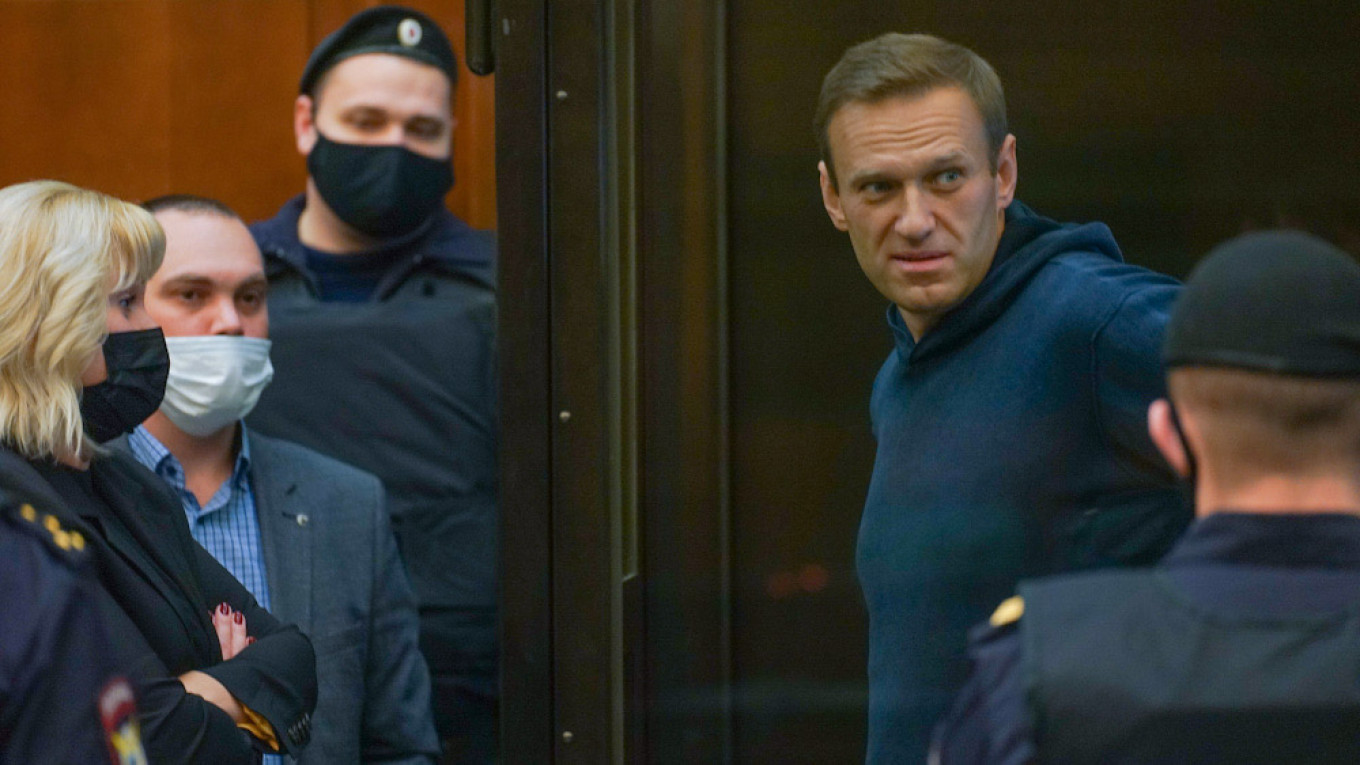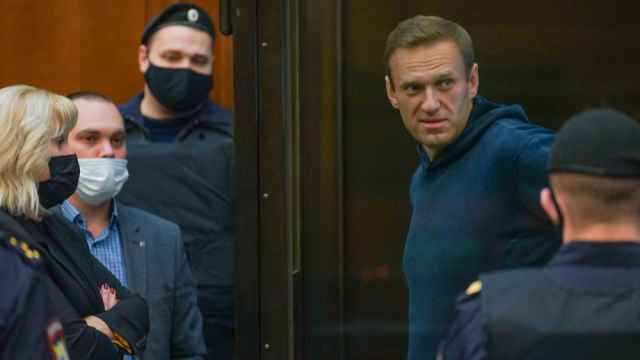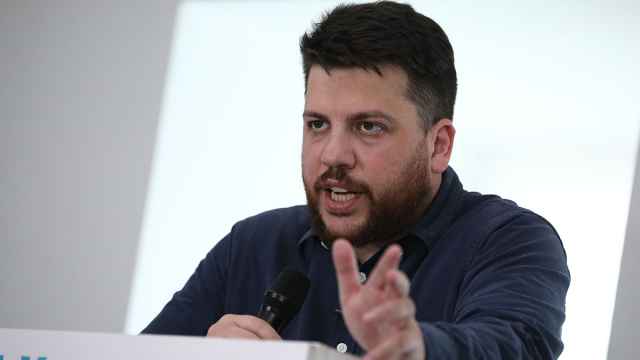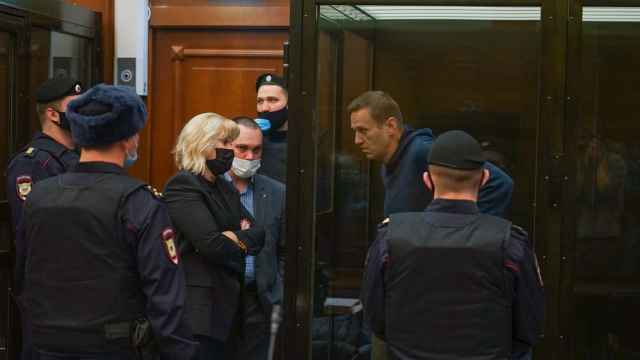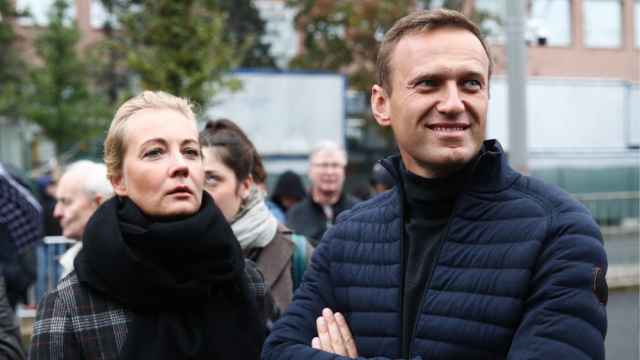Europe's top human rights court has called on Russia to release jailed Kremlin critic Alexei Navalny "immediately."
Navalny was sentenced to nearly 3 years in prison on Feb. 2 for violating his probation in a 2014 fraud conviction while he recovered from a near-fatal poisoning in Germany. The ECHR in 2017 ruled that Navalny's 2014 conviction had been “arbitrary and unreasonable.”
The European Court of Human Rights (ECHR)'s demand for Navalny’s release “shall apply with immediate effect,” according to a Wednesday press release.
The ECHR said seven of its judges made the resolution in “regard to the nature and extent of risk to the applicant’s life” after Navalny filed a complaint with the court seeking his release on Jan. 20.
This marks the first time the ECHR has made such a resolution, Navalny’s attorney Olga Mikhailova told Interfax. Russian authorities are obliged to comply with it, she added, as Russia is a member of the Council of Europe rights body.
Russian Justice Minister Konstantin Chuychenko has called the ECHR's order "impossible to comply with," saying it contradicts Russian law.
The Justice Ministry had said on Tuesday that it wouldn’t comply with ECHR calls to release Navalny, calling such demands “a flagrant intervention in operation of the judicial system of a sovereign state,” the state-run TASS news agency reported.
Navalny's Jan. 17 detention upon his return from Germany and a mass crackdown on protesters calling for his release both sparked outrage among European capitals. The EU is reportedly drafting new sanctions against Moscow as a result.
Navalny’s legal team has also filed a complaint with the ECHR arguing that Russia violated Navalny’s right to life by refusing to open an investigation into his August poisoning in Siberia. European scientists concluded that he had been poisoned with the Soviet-era nerve agent Novichok.
A Message from The Moscow Times:
Dear readers,
We are facing unprecedented challenges. Russia's Prosecutor General's Office has designated The Moscow Times as an "undesirable" organization, criminalizing our work and putting our staff at risk of prosecution. This follows our earlier unjust labeling as a "foreign agent."
These actions are direct attempts to silence independent journalism in Russia. The authorities claim our work "discredits the decisions of the Russian leadership." We see things differently: we strive to provide accurate, unbiased reporting on Russia.
We, the journalists of The Moscow Times, refuse to be silenced. But to continue our work, we need your help.
Your support, no matter how small, makes a world of difference. If you can, please support us monthly starting from just $2. It's quick to set up, and every contribution makes a significant impact.
By supporting The Moscow Times, you're defending open, independent journalism in the face of repression. Thank you for standing with us.
Remind me later.


